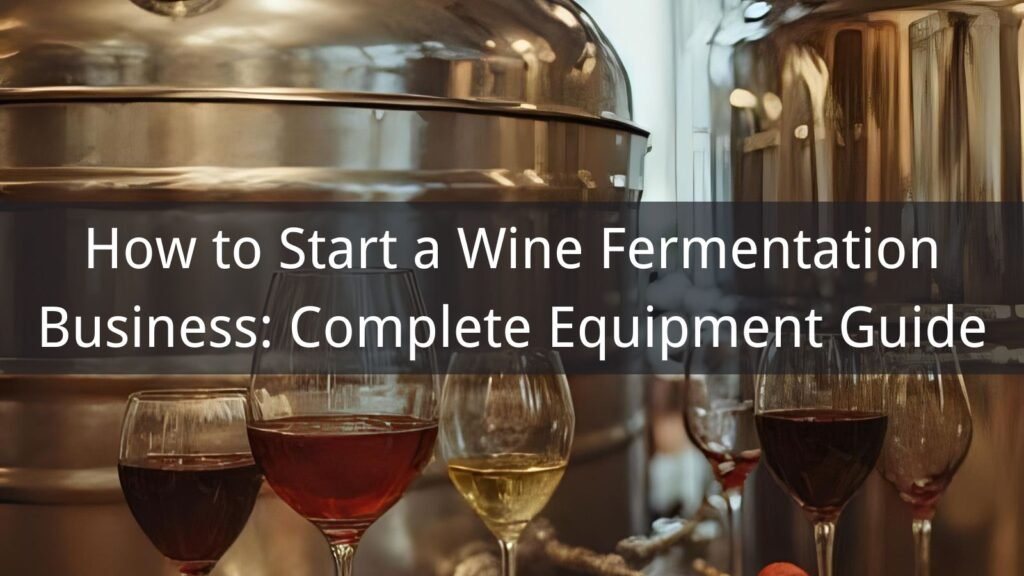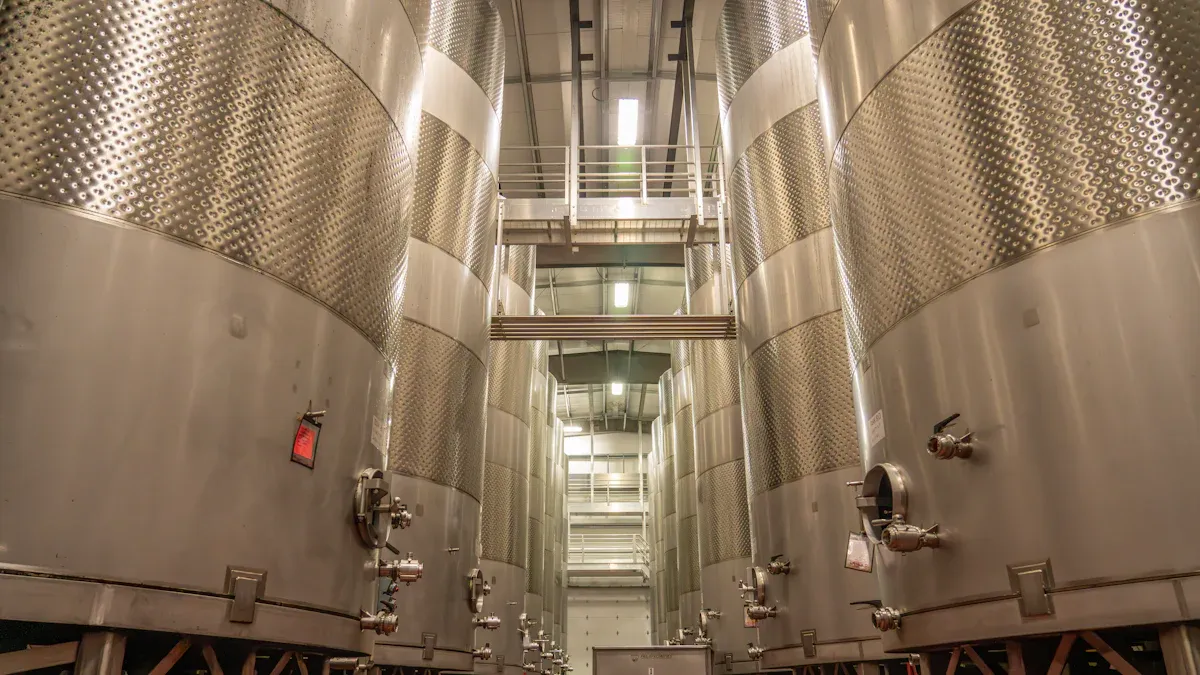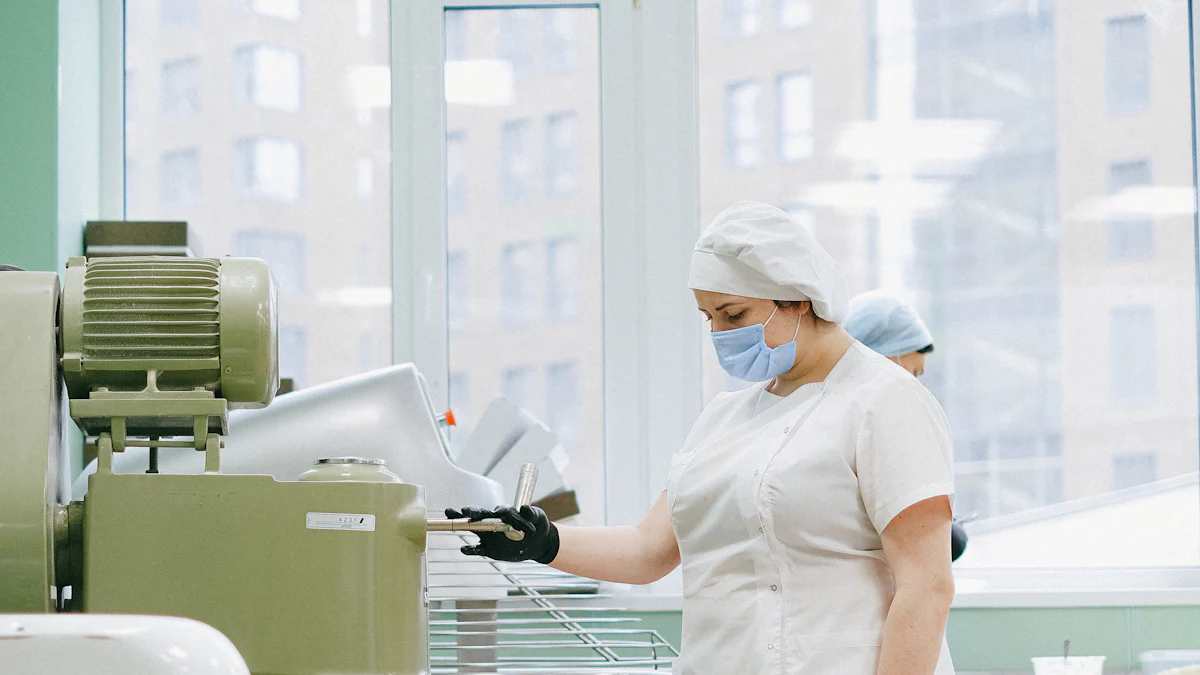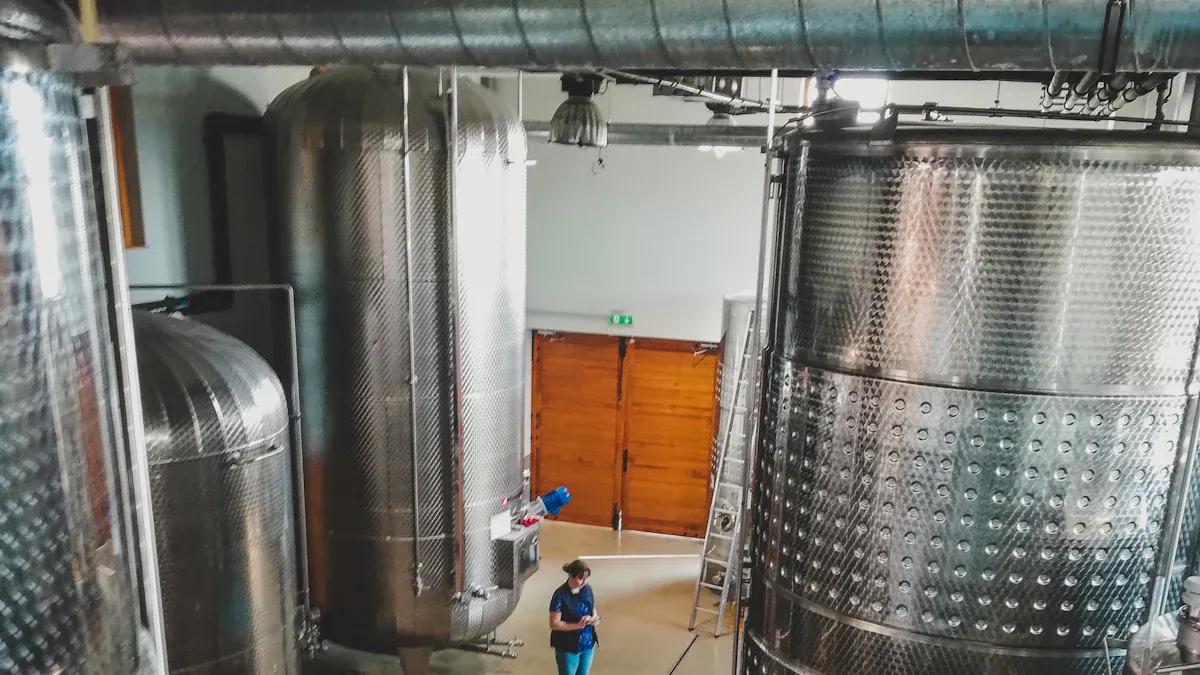
Starting a wine fermentation business requires careful planning, quality equipment selection, and thorough understanding of the winemaking process. This comprehensive guide covers everything from initial market research to selecting the right fermentation tanks, helping you establish a successful wine production operation. Whether you’re planning a small craft winery or a large-scale commercial facility, understanding the equipment requirements, licensing procedures, and cost considerations will set you up for success in the competitive wine industry.
Table of Contents
What is Wine Fermentation Business?
A wine fermentation business involves the production of wine through the controlled fermentation process of grape juice or other fruits. This process transforms sugars into alcohol using yeast, creating the final wine product. Modern wineries rely heavily on specialized equipment, particularly stainless steel fermentation tanks, to ensure consistent quality and efficient production.
The wine fermentation process requires precise temperature control, proper sanitation, and quality equipment to produce premium wines. Professional wineries utilize various types of fermentation vessels, from traditional oak barrels to modern stainless steel wine tanks, each offering unique benefits for different wine styles.
Steps to Start a Wine Fermentation Business
Market Research and Business Plan
Before investing in expensive fermentation equipment, conduct thorough market research to understand your target audience, competition, and market demand. Develop a comprehensive business plan that includes:
- Target market analysis and customer demographics
- Production capacity planning and scaling strategies
- Distribution channels and marketing approach
- Financial projections and break-even analysis
- Equipment requirements and supplier evaluation
Consider specializing in specific wine types or market segments, such as organic wines, premium varieties, or value-oriented products. This focus will help determine your equipment needs and production processes.
Apply for Winery Licenses and Permits
Wine production is heavily regulated, requiring multiple licenses and permits before you can begin operations. Essential licensing requirements include:
| License Type | Purpose | Typical Processing Time |
|---|---|---|
| Federal Basic Permit | Authorization to operate as a winery | 6-12 months |
| State Winery License | State-level production authorization | 3-6 months |
| Local Permits | Zoning, building, health permits | 1-3 months |
| Label Approval | Wine label compliance | 1-2 months |
Start the licensing process early, as approvals can take significant time and may affect your production timeline and equipment installation schedule.
Determine Your Wine Products
Your product selection directly impacts equipment requirements and facility design. Consider these factors when determining your wine portfolio:
- Wine varieties: Red wines, white wines, rosé, sparkling wines
- Production volume: Small batch artisanal vs. large-scale commercial
- Quality level: Premium, mid-tier, or value positioning
- Fermentation methods: Traditional vs. modern techniques
Different wine types require specific fermentation approaches. Red wines typically need open-top fermentation tanks for cap management, while white wines benefit from closed, temperature-controlled systems. Understanding these requirements helps in selecting appropriate wine fermentation tanks.
Location Selection
Choosing the right location affects operational efficiency, costs, and market access. Key considerations include:
- Proximity to grape sources and suppliers
- Climate conditions for year-round operations
- Utility availability (water, electricity, natural gas)
- Transportation access for raw materials and distribution
- Local regulations and zoning compliance
- Labor availability and costs
Consider the facility’s expansion potential, as successful wineries often need to increase production capacity. Plan for adequate space for fermentation tanks, storage, bottling lines, and administrative areas.
Selection of Wine Production Equipment
Equipment selection represents the largest capital investment for most wineries. Focus on quality, reliability, and scalability when choosing fermentation equipment. Essential equipment categories include:
Stainless Steel Fermentation Tanks
Stainless steel wine tanks offer numerous advantages for commercial wine production, including excellent temperature control, easy cleaning, and long service life. When selecting fermentation tanks, consider:
- Capacity range: Match tank sizes to your production volume
- Temperature control: Cooling jackets or internal coils
- Configuration: Conical, cylindrical, or variable capacity designs
- Accessories: Sample ports, cleaning systems, pressure relief valves
Professional manufacturers like Shandong Chenma Machinery Co., Ltd. specialize in high-quality stainless steel fermentation tanks designed specifically for wine production. Their expertise in fermentation equipment ensures optimal performance and reliability for commercial wineries.
Variable Capacity Wine Tanks
Variable capacity wine tanks provide flexibility for different batch sizes and wine styles. These tanks feature adjustable volumes, allowing winemakers to minimize headspace and prevent oxidation during fermentation and aging processes.
Benefits of variable capacity systems include:
- Reduced wine oxidation through precise volume control
- Flexibility for different batch sizes
- Improved wine quality through proper headspace management
- Cost efficiency for smaller production runs
Supporting Equipment and Systems
Complete wine production requires additional equipment beyond fermentation tanks:
| Equipment Category | Key Components | Function |
|---|---|---|
| Grape Processing | Crushers, destemmers, presses | Prepare grapes for fermentation |
| Temperature Control | Chillers, glycol systems, heat exchangers | Maintain optimal fermentation temperatures |
| Pumping Systems | Centrifugal pumps, peristaltic pumps | Transfer wine between vessels |
| Cleaning Systems | CIP systems, spray balls, cleaning chemicals | Maintain sanitation standards |
| Quality Control | Laboratory equipment, testing kits | Monitor fermentation progress |
Financial Management and Cost Control
Effective financial management is crucial for winery success. Key areas to monitor include:
- Cash flow management: Wine production has long cash cycles
- Inventory control: Raw materials, work-in-process, finished goods
- Cost accounting: Track production costs per bottle or batch
- Equipment financing: Lease vs. purchase decisions for major equipment
Consider working with equipment manufacturers who offer financing options or payment plans. Companies like Shandong Chenma Machinery provide flexible payment terms for large equipment purchases, helping wineries manage their capital investments.
How Much Does It Cost to Start a Wine Fermentation Business?
Startup costs for wine fermentation businesses vary significantly based on production scale, equipment quality, and facility requirements. Here’s a breakdown of typical investment ranges:
Small-Scale Winery (1,000-5,000 cases annually)
| Cost Category | Investment Range | Percentage of Total |
|---|---|---|
| Fermentation Equipment | $150,000 – $300,000 | 25-30% |
| Facility and Infrastructure | $200,000 – $400,000 | 35-40% |
| Licensing and Permits | $25,000 – $50,000 | 3-5% |
| Working Capital | $100,000 – $200,000 | 15-20% |
| Other Equipment | $75,000 – $150,000 | 10-15% |
| Total Investment | $550,000 – $1,100,000 | 100% |
Medium-Scale Winery (5,000-20,000 cases annually)
Medium-scale operations require more sophisticated equipment and larger facilities:
- Fermentation tanks: $400,000 – $800,000
- Processing equipment: $300,000 – $600,000
- Facility development: $500,000 – $1,000,000
- Working capital: $300,000 – $500,000
- Total investment: $1.5M – $2.9M
Large-Scale Commercial Winery (20,000+ cases annually)
Large commercial operations require significant capital investment:
- Complete equipment package: $2M – $5M
- Facility construction: $3M – $8M
- Working capital: $1M – $2M
- Total investment: $6M – $15M+
Cost-Saving Strategies
Reduce startup costs through strategic planning:
- Phased expansion: Start smaller and expand as demand grows
- Used equipment: Consider high-quality used fermentation tanks
- Equipment leasing: Reduce upfront capital requirements
- Supplier relationships: Work with manufacturers offering financing
Shandong Chenma Machinery offers competitive pricing on new stainless steel fermentation tanks and can provide guidance on equipment selection to optimize your investment. Contact them at admin@sdchenma.com or WhatsApp: 008618063421809 for detailed equipment quotations.
Ongoing Operational Costs
Beyond initial investment, consider ongoing operational expenses:
- Raw materials: Grapes, yeast, additives (40-50% of revenue)
- Labor costs: Production staff, cellar workers (15-25%)
- Utilities: Electricity, water, gas (3-5%)
- Maintenance: Equipment service, replacement parts (2-4%)
- Packaging: Bottles, corks, labels (8-12%)
- Marketing: Advertising, tastings, events (5-10%)
Conclusion
Starting a wine fermentation business requires significant planning, investment, and expertise, but offers rewarding opportunities for those passionate about winemaking. Success depends on careful equipment selection, particularly choosing high-quality stainless steel fermentation tanks from reputable manufacturers.
Key success factors include:
- Thorough market research and business planning
- Proper licensing and regulatory compliance
- Strategic equipment selection and facility design
- Adequate capital planning and financial management
- Focus on quality and consistency in production
When selecting fermentation equipment, partner with experienced manufacturers who understand the wine industry’s unique requirements. Shandong Chenma Machinery Co., Ltd. brings over two decades of experience in designing and manufacturing stainless steel tanks for wineries worldwide. Their comprehensive product range includes stainless steel wine tanks and complete fermentation systems tailored to your specific needs.
Located in Shandong Province’s Economic Development Zone, Chenma operates a 20,000 m² production facility with over 200 skilled professionals. They maintain ISO9001, ISO14001, OHSAS18001, and CE certifications, ensuring the highest quality standards for their fermentation equipment.
For expert guidance on starting your wine fermentation business and selecting the right equipment, contact Shandong Chenma Machinery:
- Website: sdchenma.com
- Email: admin@sdchenma.com
- WhatsApp: 008618063421809
- Address: Pingyuan County Economic Development Zone, Dezhou City, Shandong Province
Their experienced engineering team can help design custom solutions for your specific production requirements, ensuring your wine fermentation business starts with the foundation for long-term success.



